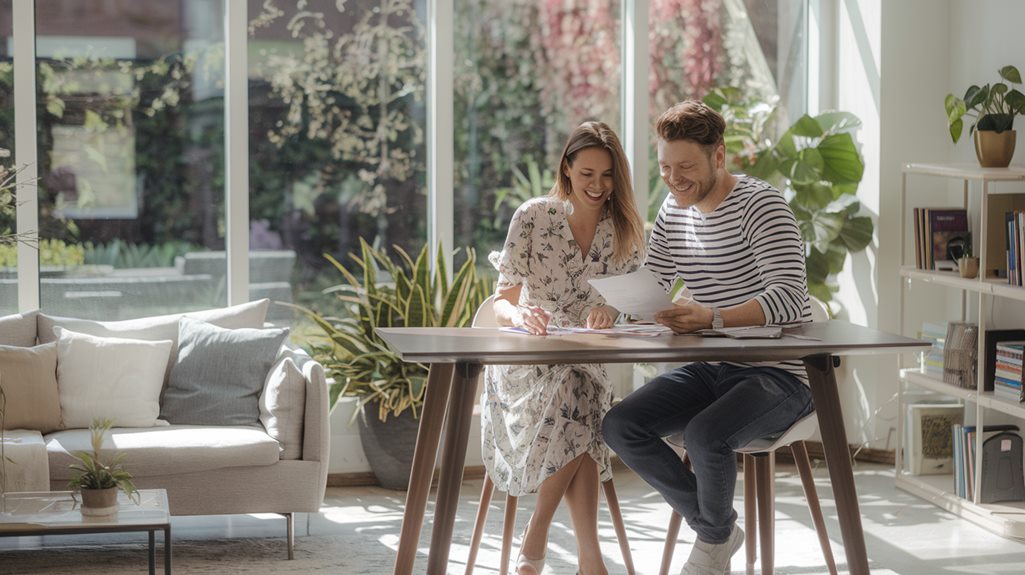Starting your journey to buy a home is exciting! First, check how much money you have. This means looking at your savings and your credit score. You need to know how much money you can save for a down payment.
Next, make a budget. Think about how much you can spend each month. Remember to include extra costs like taxes and insurance so you won't be surprised later.
Then, get a mortgage pre-approval. This shows sellers that you are serious about buying a home and that you know what you can afford.
After that, learn about different neighborhoods. Look for places that have what you want, like parks or good schools, and make sure they are safe.
Finally, practice negotiating. Know what homes are worth and be friendly with sellers. This helps you get a good deal.
These steps will help you feel ready to buy your first home and make smart choices along the way. Each step is important to help you find your dream home!
Ready to start building equity in your own Michigan home? Get your personalized home loan quote today.
Assess Your Financial Health

Before you start looking for a new home, it's really important to check how your money is doing. Your credit score is a big deal because it helps you get a good loan for your house.
Look at your credit report to see if everything is correct. If you find mistakes, fix them to make your score better.
Try to save money by setting up automatic transfers to a special savings account. This will help you save for your down payment and other costs when buying a home.
By taking care of your money, you aren't just getting ready to buy a house. You're also making sure you have a safe and happy future.
Plus, having good finances helps you feel like you belong in your new community!
Michigan residents, unlock the door to your new home. Request your home loan quote from Treeside Financial today.
Determine Your Budget
Figuring out your budget is an important part of buying a home. First, you need to know how much money you can spend. Look at your savings to see if you have enough for a down payment. This is usually between 3% and 20% of the home's price. If you can pay more now, it can help lower your monthly payments.
Don't forget about extra costs, too! You'll need to pay for things like property taxes, home insurance, and maintenance. These can add up and surprise you later.
Secure Mortgage Pre-Approval

Understanding your budget is very important. It helps you get ready for the next big step: getting a mortgage pre-approval. This is a key move that shows you're serious about buying a home. It also helps you learn about the different types of mortgages you can choose from.
To know where you stand, you should check your credit score. Lenders look at this score to see if you can borrow money and what interest rates you might get.
If your credit score is higher, you can find better mortgage options. This can save you money each month and help you in the long run.
Explore Neighborhood Options
When you start looking for a new home, exploring different neighborhoods is very important. It can help you find a place where you will be happy and feel good about your choice. Think about what you really want. Do you like busy places with lots of shops and parks, or do you want a quiet area to relax? If you have kids or plan to have them, local schools are really important too. You want them to learn in a good school.
Here are some things to think about when looking at neighborhoods:
| Feature | What to Think About |
|---|---|
| Community Amenities | Are there parks, shops, and places to eat? |
| Local Schools | How good are they? Are they close by? |
| Transportation | Is it easy to get around? How long does it take to travel? |
| Safety | Is the area safe? What are the crime rates? |
Take your time and find the neighborhoods that feel just right for you and your family!
Master the Art of Negotiation

Finding the right neighborhood is just the first step in buying a home. Now, it's time to learn how to negotiate and get the best deal. Start by looking up what homes are selling for. This way, you'll know how much the home is really worth.
With this information, you can try to offer a little less than what the seller is asking. You can also ask the seller for things like help with closing costs. It's important to be friendly with the seller. When you build a good relationship, they might be more willing to work with you.
When it's time to close the deal, make sure to set clear deadlines and be open to changes. Remember, being patient and trying hard can really help.







